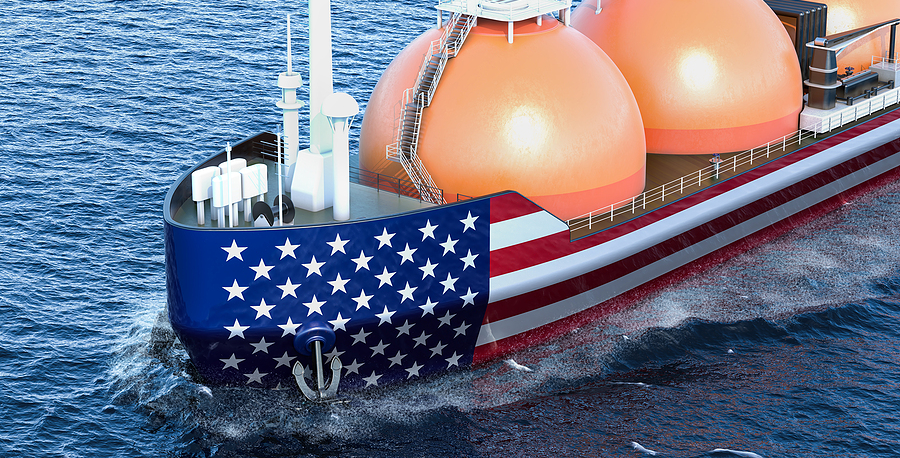Proximo Weekly: Venture Global and its commissioning cargoes
There are still questions to be answered about Venture Global’s recent corporate high-yield bond issue, which appears to rely heavily on revenues from commissioning cargoes priced at the current lucrative spot market rate. Given average LNG commissioning periods of three months, what happens when its much cheaper long-term offtake contracts kick in?

In the ten years since its establishment, Venture Global has demonstrated its ability to raise large volumes of debt for its portfolio of US LNG projects, having secured a total of $26.8 billion of non-recourse debt for the Calcasieu Pass and Plaquemines projects. The company has now closed a $4.5 billion corporate bond financing, pushing the envelope when it comes to leveraging the LNG assets that make up much of its balance sheet.
The offering raised $1 billion more than the initially offered amount of $3.5 billion. The notes issued comprise a series of 8.125% senior secured notes maturing in 2028 in an aggregate principal amount of $2.25 billion and a series of 8.375% senior secured notes maturing in 2031 in an aggregate principal amount of $2.25 billion. The notes were issued at par and the proceeds will be used to prepay Venture Global's existing senior secured first lien credit facilities in full, to pay fees and expenses in connection with the offering, and for general corporate purposes.
The notes rank pari passu and are secured against the existing and future assets of Venture Global and its future guarantors (if any), in line with customary exclusions. The prepayment of existing facilities refinances Venture Global’s $2.3 billion term loan, which matures in 2025. Venture Global is in a structurally subordinated position to around $19 billion of non-recourse project-level debt. Moody’s rated the bonds ‘B1’, while Fitch issued a ‘BB-’/’RR2’ ratings and S&P Global Ratings gave the notes a ‘BB-’ rating and a recovery rating of ‘2’. All three rating agencies have assigned a stable rating outlook.
Cashflow that will service the debt is expected to come primarily from Venture Global’s Calcasieu Pass and Plaquemines projects. The company will have two additional projects in its portfolio – CP2 LNG and Delta LNG – but these are in earlier stages of development. Calcasieu Pass took a final investment decision in 2019, raising $5.8 billion of project finance debt. The 10 MTPA project is located in Cameron Parish, Louisiana, south of the city of Lake Charles. Project debt for Calcasieu Pass matures in 2026, but has largely been refinanced with four series of project bonds. The project has twenty-year sale and purchase agreements (SPAs) with Shell, BP, Edison, Galp, Repsol, and PGNiG.
Plaquemines consists of two phases, which were financed via two separate transactions, with project debt coming to $13.2 billion and $7.8 billion for Phase 1 and Phase 2, respectively. The Phase 1 financing reached financial close in 2022 and the Phase 2 deal closed in 2023. The project site is in Plaquemines Parish, Louisiana, approximately 20 miles south of New Orleans. Together, the two phases have a nameplate capacity of 20 MTPA. Offtakers across the two phases include PGNiG, Sinopec, CNOOC, Shell, EDF, ExxonMobil, Chevron, EnBW, New Fortress Energy, China Gas, PETRONAS, and Excelerate Energy. Most of the SPAs run for twenty years.
Discussing the projects’ contracted revenues, Fitch’s rating report on the notes indicates that ‘each SPA provides revenue from a fixed-capacity fee paid regardless of LNG volumes lifted and a commodity-based variable fee on LNG volumes delivered, equal to 115% of current [Henry Hub] prices’. The projects are also able to generate revenue during commissioning. The modular trains used for both projects produce more LNG than those of a traditional stick-built project during commissioning, allowing for substantial spot market sales before the projects each reach their commercial operation date (COD).
A lengthy commissioning period
Commissioning for US LNG projects ordinarily takes around three months, subject to some variation between projects. Calcasieu Pass has, however, been in commissioning for over a year and the first commissioning cargoes were shipped in March 2022. S&P Global reports that Calcasieu Pass’s offtake contracts ‘carry some of the lowest fixed liquefaction fees among US exporters’, which Venture Global could have offset by selling cargoes on the spot market during an extended commissioning period.
It is certainly no secret that LNG spot prices have skyrocketed since Russia’s invasion of Ukraine, with Henry Hub prices peaking at a monthly average of $8.81/MMBtu in August 2022. Calcasieu Pass has exported LNG at spot market prices throughout this period and has loaded 130 commissioning cargoes as of March 2023 and earned $11 billion in gross proceeds, according to the Moody’s report on the offering. Long-term offtakers have not received LNG during this period. Repsol, one of Calcasieu Pass’s offtakers, has recently filed a motion to intervene out of time in connection with the ongoing commissioning period, which Venture Global has opposed.
Debt service for the notes is likely to depend on revenue from commissioning cargoes and the SPAs. Following commissioning, debt service will be reliant on distributions paid after repayments for project debt. Distributions are prohibited if DSCRs fall below 1.25x. Calcasieu Pass is currently expected to reach COD in 2024 and to earn revenue from commissioning cargoes until that point. At present, construction on Plaquemines is 40% complete and the project could produce revenue through commissioning cargoes by mid-2024. In terms of further liquidity, Fitch indicates that, as of 31 March 2023, Venture Global had $814 million in cash, of which $120 million is tied to meeting project-level debt service reserve funds.
An intriguing aspect of the transaction is whether or not revenues from commissioning cargoes are expected to play a significant part in servicing the debt. There are certainly indicators that rating agencies have included commissioning revenues in their assessments of the bonds. Fitch states that ‘debt obligations benefit from the early cargo revenues generated during the commissioning period from its projects’.
In addition, Fitch refers to ‘significant weakness in global LNG prices, pressuring the company's cash flow generation from early cargoes’ as a factor that could lead to a rating downgrade. In short, if debt service were not, to a greater or lesser degree, dependent on commissioning revenues, Fitch would be unlikely to cite commodity price fluctuations as a rating sensitivity.
In a similar vein, Moody’s indicates that ‘the stable outlook incorporates Moody's expectation for continued progress around commissioning and construction activities at VGCP and VGPL, respectively, and continued sizable distributions from VGCP over the next several months’. Discussing construction and commissioning at Calcasieu Pass (VGCP) and Plaquemines (VGPL), Moody’s links its stable rating for the notes to continuing commissioning revenue from Calcasieu Pass. This suggests there could be some role for cashflow from commissioning in debt service for the bonds.
This potential role seems more likely when one considers that these revenues are not pledged to Venture Global’s project financings. As Jodi Hecht, a senior director at Fitch Ratings and the primary rating analyst for Fitch’s report, says: “Venture Global generates a lot of commissioning revenues. We take a view on those revenues and have given them some credit. Generally, the commissioning revenues are not pledged to Venture Global’s project financings, except to fund the construction reserves and expected amortization before COD.
“A large part of the revenue generated by the commissioning cargoes is available to service corporate debt, those remaining after sweeping a portion to the equity bridge loan. We believe those revenues are more volatile than project distributions generated from long term contracts and will vary based on global supply and demand.”
The equity bridge loan that Hecht references is for the Plaquemines project and matures in 2025. That a large portion of commissioning revenues are able to be used to repay corporate debt indicates, again, that variable commissioning revenues could be part of servicing the debt raised.
The Proximo perspective
There has certainly been strong interest from bond investors in Venture Global’s bond issuance, as shown by the fact that the final amount of debt raised was $1 billion higher than the initially offered amount. Venture Global is one of the pre-eminent players in US LNG at a time when the sector is experiencing a boom, meaning that there was always likely to be demand from investors.
While the notes are below investment grade, appetite has grown for junk infrastructure bonds in the US debt capital markets over the last twenty years or so, limiting the impact of this rating as a deterrent. Indeed, Venture Global has shown that liquidity for the US LNG sector is very strong. Fitch estimates that the company’s leverage (total consolidated debt to proportional EBITDA) will average just over 6.0x between 2023 and 2027.
For bondholders, a connection between revenue from commissioning cargoes and debt repayment introduces two elements of risk. First, income earned from commissioning cargoes is susceptible to commodity price risk. Monthly average Henry Hub prices dropped to $2.15/MMBtu in May, bringing spot prices closer to 2019 levels. Henry Hub is, of course, not the only relevant marker to consider, but it is part of a broader trend of global LNG prices normalising. This may change when Europe endures its second winter since Russia’s war on Ukraine, but it remains true that LNG prices are volatile and sudden price drops could reduce the amount of cashflow from commissioning cargoes that Venture Global could use to service corporate debt.
Even if average commodity prices remain high, a second area of risk still applies. If arbitration proceedings involving a long-term offtaker were to lead to an early end to commissioning, cashflow from the projects would likely decrease. In relation to this, Moody’s states that ‘cash flows, although stable and predictable, will decrease upon the commencement of obligations under existing Sale Purchase Agreements’. LNG may be sold more cheaply under SPAs than on the spot market and a portion of SPA revenues will be used to service project-level debt, both of which could lessen cashflow available for corporate debt repayments.
Whether or not Venture Global’s bond issuance was made possible by commissioning revenues is an open question. Proximo approached Venture Global for comment on this point, but did not receive a response. The answer to this question would help to determine the extent to which servicing Venture Global’s $4.5 billion of high-yield bond debt is based on commissioning revenues that are, by nature, uncertain. Regardless of this, any potential risk would be limited if LNG prices remain elevated and commissioning timelines stay unchanged, or if distributions derived from SPAs alone can support corporate debt service.
If the risks identified do apply, they might not be of enormous consequence to investors. Corporate debt is not bound by the strictures of project debt, which often demands revenue certainty. Investors will either make a return on high-yield debt, or, in the event of a default, take ownership of Venture Global in a strong US LNG market. From an investor’s standpoint, what’s not to like?
Selected news articles from Proximo last week
Developer seeks to terminate its Mayflower Wind PPAs
SouthCoast Wind, the developer of an offshore wind lease area off the coast of Massachusetts, has started discussions with this US state to terminate its PPAs.
Ofgem plans OFTO asset auctions worth £7bn
UK energy regulator Ofgem has hosted a conference for prospective bidders to outline its plans to auction offshore transmission assets worth £7 billion ($8.68 billion).
NEXI, MUFG to accelerate blended financing in Asia
NEXI and MUFG have signed an MoU to establish a blended finance scheme to support projects aligned with the Asia Zero Emission Community.
SWPC receives four bids for Al-Haer ISTP
The Saudi Water Partnership Company (SWPC) has received for bids for its 200,000 m3 per day Al-Haer Independent Sewage Treatment Plant Project (ISTP).
Aligned Data Centers signed on the debt facilities to back its acquisition of Latin American data center provider ODATA last month.
The Proximo Intelligence subscription
Join our community of project finance professionals to get unrivalled access to unique analysis, market data and a global portfolio of expert industry events in the energy and infrastructure space. Click here to find out more





